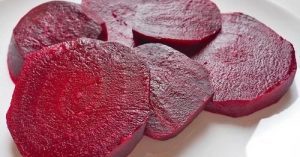;)

Read on to know how consuming cabbage can benefit our health!
Cabbage resembles lettuce a lot but it belongs to the Brassica genus, which includes vegetables such as cauliflower, broccoli, and kale. There are various color options available of this vegetable and all of them are packed with healthy vitamins and minerals. Here are 9 ways in which eating cabbage is beneficial for our well-being.
Rich in nutrients

Cabbage is very low in calories, but it has a high content of vitamin K, vitamin C, folate, manganese, vitamin B6, calcium, potassium, and magnesium. It is also rich in fiber and antioxidants such as polyphenols.
Anti-inflammatory

This cruciferous vegetable contains a high level of the antioxidant compound such as sulforaphane and kaempferol, which controls chronic inflammation.
High vitamin C content

Vitamin C offers various health benefits such as, to make collagen, absorb non-heme iron, offers antioxidant benefits, and prevents cancer. All varieties of cabbage are an excellent source of this water-soluble nutrient, but red cabbage, in particular, provides the highest (about 85%) of the RDI of vitamin C per cup serving.
Improves digestion

It is rich in fiber, particularly the insoluble type, which adds bulk to the stool and promotes regular bowel movements. It is also quite high in soluble fiber content that benefits the gut bacteria, is vital for our enhanced immunity, and for the production of vitamin B12 and vitamin K2.
For heart

Red cabbage is rich in anthocyanins that are beneficial for heart health. There are studies which associate dietary intake of anthocyanins with lower blood pressure and a reduced risk of coronary artery disease. Anthocyanins are also rich in compounds which control chronic inflammation and this leafy vegetable contains more than 36 kinds of anthocyanins.
Maintains blood pressure

It is important to increase the dietary potassium intake to lower blood pressure and red cabbage is an excellent source of this vital mineral where each 2 cup serving provides 12% of the RDI of potassium.
Maintain cholesterol level

Cabbage contains a high content of soluble fiber and plant sterols (phytosterols) that are known to reduce the bad or LDL cholesterol level in blood.
Rich in vitamin K

This fat-soluble vitamin is extremely important to promote blood clotting and each cup serving of cabbage provides 85% of the RDI of vitamin K.
Easy to incorporate in diet

Cabbage is quite delicious and can be eaten raw or cooked in salads, sauerkraut, soups, slaws, and stews. So, you must try to regularly incorporate this healthy vegetable in your diet.
;Resize,width=712;)
;Resize,width=712;)
;Resize,width=712;)
;Resize,width=767;)
